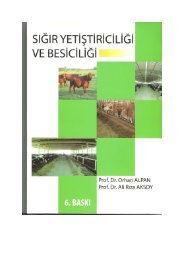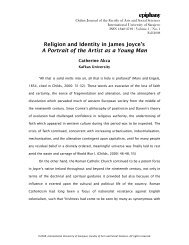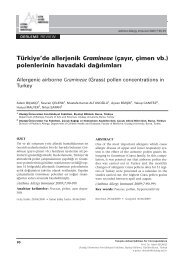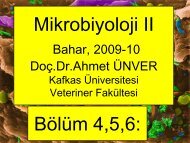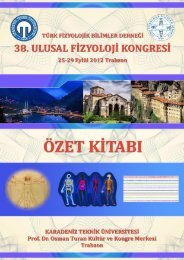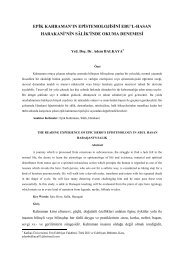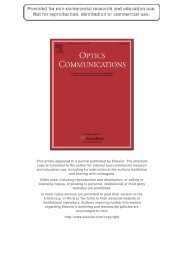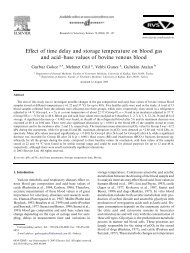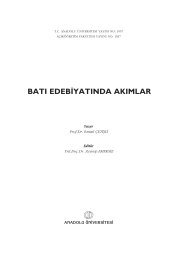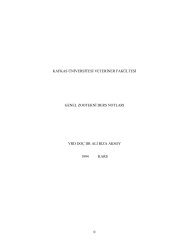XVII. Yüzyıl Klasik Türk Åiirinin Anlam Boyutunda Meydana Gelen ...
XVII. Yüzyıl Klasik Türk Åiirinin Anlam Boyutunda Meydana Gelen ...
XVII. Yüzyıl Klasik Türk Åiirinin Anlam Boyutunda Meydana Gelen ...
You also want an ePaper? Increase the reach of your titles
YUMPU automatically turns print PDFs into web optimized ePapers that Google loves.
280 Şener DEMĐREL<br />
meydana getirmiş oldukları değişme ve gelişmeler<br />
üzerinde durulacak, konu söz konusu üslûp/tarzların<br />
temsilcisi durumundaki şairlerin şiirlerinden alınan<br />
örnek beyitlerle irdelenmeye çalışılacaktır.<br />
Anahtar Kelimeler: Divan Şiiri, <strong>Klasik</strong> Üslup,<br />
Sebk-i Hindî, Hikemî Tarz, Mahallileşme, <strong>Anlam</strong>.<br />
STYLE ACTIVITIES SEEN IN THE MEANING<br />
DOMAIN OF <strong>XVII</strong>. CENTURY CLASSIC TURKISH<br />
POETRY: CLASSICAL STYLE-SEBK-Đ HĐNDÎ-HĐKEMÎ<br />
TARZ- LOCALIZATION<br />
ABSTRACT<br />
<strong>XVII</strong>. century corresponds to a period called<br />
“Middle Classic Period” by literature historians, a period<br />
where the Classic Turkish poetry was at the peak of its<br />
maturity. This period is also interesting, because it is a<br />
period that contains different styles/tastes feeding from<br />
the same source in Turkish poetry. It is a well known fact<br />
that until the <strong>XVII</strong>. century, there wasn’t a serious<br />
separation between the words and meaning in Classic<br />
Turkish poetry, and some poets were considered better<br />
than the others by personal preferences, but this has<br />
never became a generally accepted idea. However,<br />
especially at the end of the XVI. century and beginning of<br />
the <strong>XVII</strong>. century, with the effect of Sebk-i Hindi, first<br />
seen in Iran, India and then Divan poetry and based on<br />
hidden, concealed and complex meaning, some important<br />
changes were seen in the meaning domain of Turkish<br />
poetry. In the same century, a new formation called<br />
Hikemi Tarz, known as Nabi school and prioritizes<br />
thoughts and wisdom in poetry, has shown its effect in<br />
literature history. This new style was also based on the<br />
meaning like Sebk-i Hindi, but was interested in the<br />
concrete side of the meaning; in other words thoughts.<br />
The poets influenced by this new style have opened a new<br />
window in classic poetry and tried to enrich the meaning<br />
dimension of poetry by thought axis.<br />
Turkish Studies<br />
International Periodical For the Languages, Literature<br />
and History of Turkish or Turkic<br />
Volume 4/2 Winter 2009



